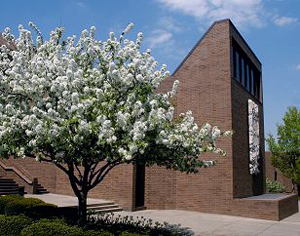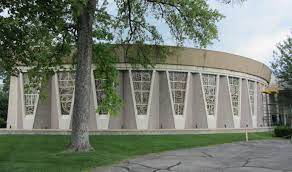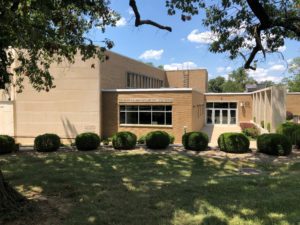By Lee Chottiner
Community Editor
(Editor’s note: The following is an updated version of the lead story in the August 27 issue of Community, which includes new information about High Holy Day plans at Keneseth Israel and The Temple. The paper had gone to press Wednesday with the latest information available by deadline, but synagogues have since revised their plans.)
Earlier this summer, Louisville synagogues were throwing off the shackles imposed by a year-old COVID pandemic, opening their buildings for worship, loosening rules requiring masks and permitting more social interaction.
Then came Delta, a highly transmissible variant of COVID.
Now, with less than two weeks to go before the High Holy Days, and with case rates rising nationwide, including Jefferson County, some synagogue leaders are making the difficult decision to retrench.
Two synagogues – Adath Jeshurun and Temple Shalom – have already announced that their services will again be virtual this year, though Temple Shalom will hold an in-person Tashlich service at Brown Park.
Keneseth Israel and The Temple are still planning some variation of in-person services, though both have revised their plans since the Community newspaper deadline.
The Temple will limit indoor seating to 125 people, all of whom must be vaccinated and masked. They will be seated alphabetically. Its RSVP process is being started over from scratch with signups now due by Thursday, Sept. 2. The children’s service will be held outdoors under a tent.
KI, which had planned both indoor and outdoor services, will now hold outdoor services only (weather permitting) for vaccinated worshippers. All children’s programming will be done at home.
Both synagogues will also stream their services.
Louisville Metro is at red status, which indicates a “high” incidence rate of confirmed cases. As of Aug. 24, 3,226 confirmed cases from the previous week – an average of 60.1 cases per 100,000 people – and 14 deaths were reported.
Nationally, hospitalizations and deaths are increasing, according to the Centers for Disease Control and Prevention. The CDC says the current seven-day moving average of daily new cases stands at 133,056, a 14-percent increase over the previous period.
Rabbi Ben Freed, who will be marking his first Days of Awe period as spiritual leader of KI, said he is committed to providing in-person experiences of some kind for the High Holy Days.
“There will have to be virtual options because not everyone will feel comfortable coming in person,” Freed said. “But we’re committed to bringing people together in as meaningful a way as possible, given all the constraints we have.”
Leaders of The Temple say offering some kind of in-person seating option in the building, however limited, has therapeutic value for worshippers. “Knowing that you have the option to be there brings some comfort, even if you choose not to [attend in person],” said Rabbi David Ariel-Joel.
Temple President Dr. Michael Salamon said the new restrictions apply only to Rosh Hashanah. The reopening committee will meet later to decide what to do on Yom Kippur.
Anshei Sfard and Chabad are both planning in-person services this year. But Anshei Sfard announced Tuesday that it will rent the sanctuary in its old building from the Jewish Community Center, enabling the synagogue to accommodate more socially distant worshippers. Last year, Anshei Sfard met under a tent outside Shalom Towers.
“We continue to monitor the Delta variant and adapt when necessary,” Anshei Sfard Rabbi Simcha Snaid said.”
Chabad will offer indoor and outdoor seating.
“Last year, when the medical authorities mandated closures, we immediately closed as that is what is biblically ordained,” said Rabbi Avrohom Litvin of Chabad. “We will close again if, and when, they determine closures to be necessary once more.”
“Our position has been that we will do whatever our doctors tell us…and that is what we have done.”
AJ had been scheduled to complete its reopening on Aug. 9, when morning minyans were to resume in person. All that is now on hold.
Slosberg said he was “heartbroken” over the decision, especially since this will be his final High Holy Days before the next senior rabbi is engaged.
“This thing is so infectious and easy to get,” Slosberg said. “There’s a growing number of break-through COVID cases [among vaccinated people], which alarmed all the doctors, and the pediatricians were showing a dramatic uptick in children.”
“This is a tragedy,” he said.





